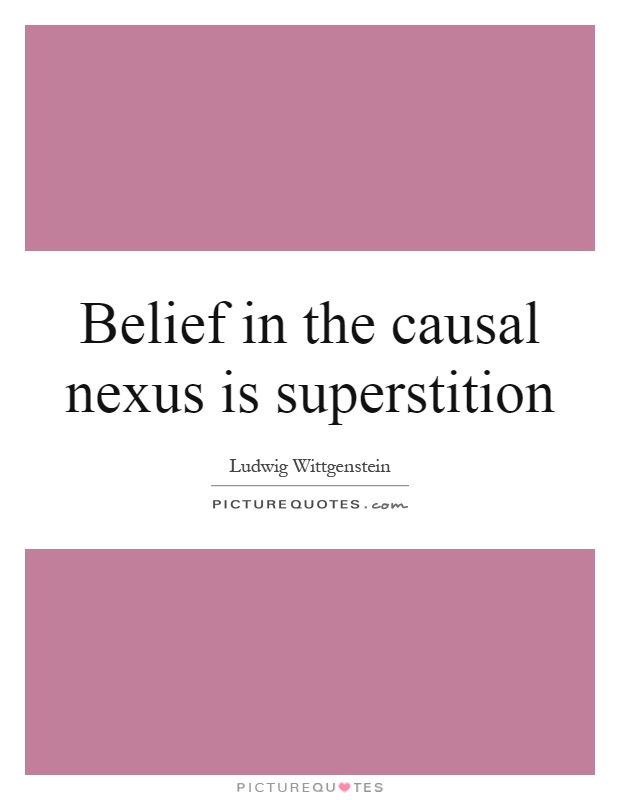Belief in the causal nexus is superstition

Belief in the causal nexus is superstition
Ludwig Wittgenstein, one of the most influential philosophers of the 20th century, was known for his groundbreaking work in the philosophy of language and logic. One of the key ideas that Wittgenstein explored in his later work is the concept of the causal nexus, which refers to the idea that events are causally connected in a chain of cause and effect. However, Wittgenstein also famously argued that belief in the causal nexus is a form of superstition.In his later work, particularly in his posthumously published work "On Certainty," Wittgenstein challenges the traditional view of causality as a necessary and universal principle governing the world. He argues that our belief in the causal nexus is not based on empirical evidence or logical necessity, but rather on a deep-seated psychological need for order and predictability in the world. In other words, our belief in causality is a form of superstition that we cling to in order to make sense of the world and feel secure in our understanding of it.
Wittgenstein's critique of the causal nexus as superstition is rooted in his broader philosophical project of dismantling traditional metaphysical and epistemological assumptions. He believed that many of the problems in philosophy arise from our tendency to treat language as a mirror of reality, rather than as a tool for communication and understanding. By challenging the belief in the causal nexus as superstition, Wittgenstein is pushing us to question our assumptions about the nature of causality and the limits of our knowledge.
Furthermore, Wittgenstein's critique of the causal nexus as superstition has important implications for our understanding of science and the natural world. If our belief in causality is not based on empirical evidence or logical necessity, then what does this mean for our scientific theories and explanations of the world? Wittgenstein's challenge to the causal nexus forces us to reconsider the foundations of our knowledge and the ways in which we make sense of the world around us.












 Friendship Quotes
Friendship Quotes Love Quotes
Love Quotes Life Quotes
Life Quotes Funny Quotes
Funny Quotes Motivational Quotes
Motivational Quotes Inspirational Quotes
Inspirational Quotes